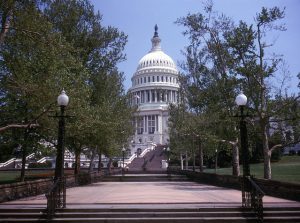California’s Legal Cannabis Market Dogged by Industry Divisiveness and Illicit Competition
California’s cannabis industry is sitting on a not-so-well kept secret — that many of its licensed, above board, legal business operators have also traded unlawfully, at some point, and to one extent or another.
As many industry insiders have echoed, anyone turning a profit in this new era, has to have at least one hand in unregulated dealings. Chris Coulombre, CEO of Pacific Expeditors in Sonoma, has said “I have to imagine that 60 percent of the market overall is probably playing in a parallel markets, but I don’t think they enjoy that. It’s truly a decision of necessity.”
Whispers of retailers selling counterfeit products are rife. Cultivators are known to sell unregulated product on the side. But how can we blame them? Suffering terribly at the hands of price undercutting from illegal competitors, these unregulated exchanges are all taking place in hopes of keeping doors open, and businesses afloat.
The Situation Overview
- State regulators and Californian law enforcement officers are yet to curb the state’s extensive black market activity;
- So much illicit activity exists that authorities simply cannot investigate it all;
- Illegal growers in sizable numbers continue to operate throughout the state; and
- More cannabis is produced than consumed in California, leading growers often to supply and export their surplus crop to illegal interstate markets.
An Industry Fragmented
Our Los Angeles cannabis business attorneys know, one of the big problems plaguing the legal California cannabis industry and its growth, is that it arguably cannot get out of its own way. Given the size of the state and the diverse ideas within it, it is very hard to achieve any kind of political unification. And that is a sticking point, because for changes to be made, you need lawmaker support.
As an example, not all industry insider votes supported Proposition 64, and the numerous Californian trade organizations often share differing speaking points for regulators and elected officials. It’s that kind of fragmentation that is hurting. Without unification, how can the industry centralize funds for lobbying activities, legal proposals or ballot measures, let alone make any political progress?
“The divisiveness among the industry is a really difficult component and one that (the California Cannabis Industry Association) is absolutely committed to working on in 2020,” said Lindsay Robinson, CCIA executive director, back in January.
Implications
Current conditions show us that incentive exists for illicit growers to obtain licenses. And the number of retailers operating legally in California is so small, they could never move all of the state’s cannabis crop alone. So, it should come as no surprise there is no way of telling when the legal market will exceed the illegal one.
Looking forward, we can expect to see a number of cannabis businesses continuing to keep one foot in each market, while the state works to help legal businesses lower their product prices. Only then will consumers be more attracted to the legal market, which will then help licensed businesses better compete with their illegal counterparts.
To address the fragmentation within the industry, stakeholders must align on their joint political goals, otherwise it will be a very long time before we see any serious systematic changes made.
The Los Angeles CANNABIS LAW Group represents growers, dispensaries, ancillary companies, patients, doctors and those facing marijuana charges. Call us at 949-375-4734.
Additional Resources:
Proposition 64 – The Control, Regulate and Tax of Adult Use Marijuana Act
 Cannabis Law Group's Medical Marijuana Legal Blog
Cannabis Law Group's Medical Marijuana Legal Blog




